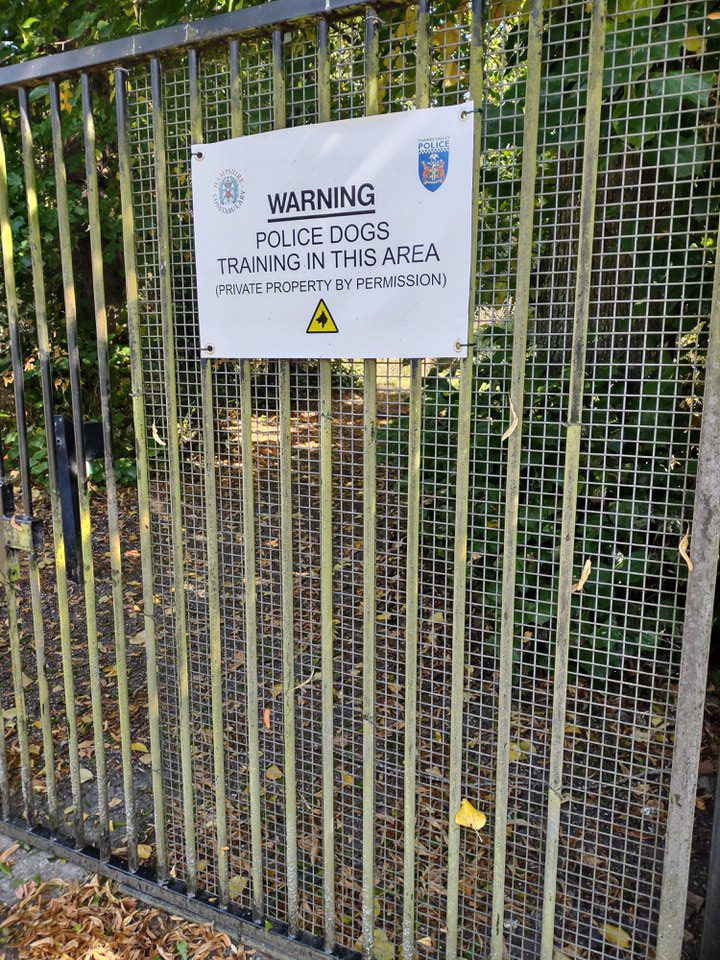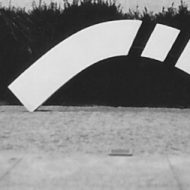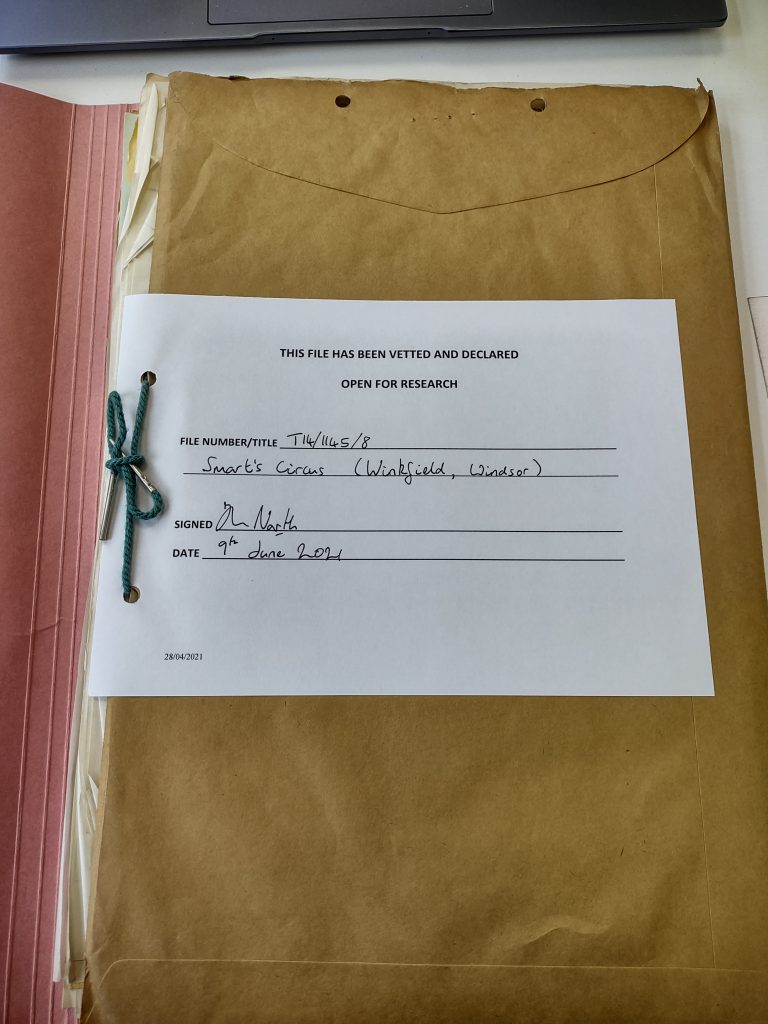
written by Beth Potter
As I write this, by hand at first to keep things loose and free, I sit before a document on my laptop screen, a dense 39 pages of notes. Its title is ‘BBC Written Archives visit’, and I compiled it in early September during three intense – enriching, nourishing, project-broadening, but intense – days in Caversham a few weeks ago, during which my neck cracked a thousand times and no amount of shoulder rolls saved my back from the archive ache.
The visit was long-awaited, and came almost exactly a year after I first requested material from the BBC Written Archives Centre (WAC). It felt, to be sure, ecstatic, as my supervisor had hinted it might, to be back sifting through old letters and carbon-copied memo papers, my clean hands gaining a film of tacky archive dust as I leafed my way through stacks of cardboard files. But now I’m back, at a desk, frontloaded with all the photographs (3,186 in the folder, I just checked) and notes I could accumulate in those three short days, I don’t feel very ecstatic at all; I feel daunted. What was a (paradoxically?) stiff-bodied but lively few days soaking up the experience of the archive – noting who came and went, what conversations I had with the archivists or other researchers, what things smelt like (horribly, beautifully, almost-mouldy) – has become a list of pixels on a screen again. I’ll have to read it all back through again, remember it all again, make myself experience it all again, all 39 pages and 3,186 photographs of it, I think, but this time in pixel form. And I’ve had enough of pixels this year.
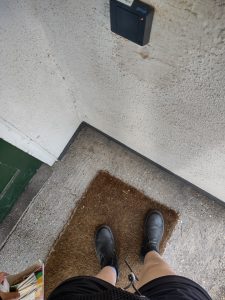
I’m grateful, though, to my archive self who, true to her name, archived the archive as she went. Just before lunch on Day 1, I/she writes , ‘Right now my mouth feels a bit like Steedman’s, a bit furry, breath dusty, musty, lips dry, but they also feel like they have ink on them, cakey.’ A moment later, Lu, the archivist, tells me how she’s so happy and lucky to work there: she loves that as an institutional archive – a corporation, even a business archive – the documents show the care (or not – she side-eyes) that the corporation gives its contributors and puts into its work. She’s been vetting the material I’m looking at today for months, and says she’s enjoyed noticing how the business-speak of correspondence between the corporation and the circuses they employed for Outside Broadcast entertainments has elided into personal catch-ups: great show, new contract in the post soon, and thanks for having the kids over for dinner on Friday, Ronnie, love to your wife; you must both come over soon. I trace these relationships through the archive as I follow Lu’s footsteps across these files. Occasionally she places a black rectangle over some information I’d love to see, redacting, institution looming over a photocopied page. I experience three concurrent timelines: the time of writing these documents; then Lu’s timeline, her hand popping up in December 2020 when they thought the archive would re-open, then May, then July, then here she is again in August, dating a slip to vet the file as my visiting days approached; then me, today (or not today – in September – I forget when I am).
But maybe it’s four timelines, actually, for one is hidden from me entirely: is its own elisions and gaps, the things I assume have happened or still do not (will never) know about. Case in point: a show that has all the planning documents for it, scripts written, cameraman contracted, but which never materialised (or would it ever have been material?) – no ‘Programme as Broadcast’ record splicing the file into a ‘before’ and an ‘after’ transmission like there usually is, but instead a letter lamenting the failure of the OB connection at Winkfield, individual apology notes to each circus act – how fantastic you looked in rehearsal, such a deep shame, nothing we could do, sometimes the live line just drops and that’s that. I find myself wishing I could see that show, but there is no trace: no recording to call up and watch as it stutters, or which will show me the behind-the-scenes aftermath of confusion and vast disappointment at a Christmas Day failure live on the BBC in 1957. But then I think, I never called up the recordings that broadcast without a hitch anyway, never saw those either: did the show not happening really make any difference to me here, now?
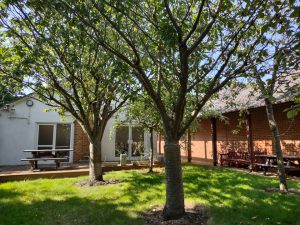
Reading my archive of my archive trip puts me right back there again, a form of time travel to just two weeks ago when I was there (I know I should’ve written this blogpost earlier, kept it fresh, but maybe writing by hand and letting my memories spill onto the page directly from my hand is helping). I’m back in this imaginative space I’ve constructed, thinking about the frustration and potential of the gaps – and all the while sure that I too am now eliding, here in writing, am forgetting (I should have written this on my way back home on the bus, I was too tired then, but isn’t tired and loose better than forgetful?).
At lunchtime on Day 3 my phone photographs of yellow page after yellow page of script drafts (not aged: this BBC producer liked using mustard yellow card for camera scripts, so hold your clichés) are interrupted with a photo of some trees and a fence. I have taken a walk around the BBC WAC, on the compound of BBC Monitoring Services (apt, I think: they’re monitoring, I’m monitoring, my walk round the back of the compound has inevitably been captured on CCTV – they are funny with security here; I’m not supposed to take photos of the building). This is the place where BBC staff have kept tabs on international media since before World War 2, where they listened to Soviet Radio through the Cold War, and where they are still listening – even now. And now the archives are here too, throwing a surveying eye backwards; and now I am here, documenting it all, every last bit: page, tree, fence, bench – there’s even a picture of my boots by the reception intercom while I stand and wait for them (them) to let me in, and a close-up of a gate round the back of the compound. This one is of a fence that seems to bifurcate my own mental mapping of the BBC site – but that must be wrong, surely, as a metal sign on the fence reads
WARNING: POLICE DOGS
TRAINING IN THIS AREA
(PRIVATE PROPERTY BY PERMISSION)
And I think: what do they think I’ll find in the next file?
